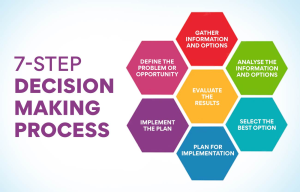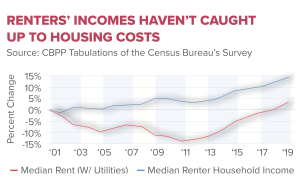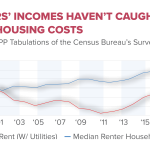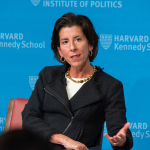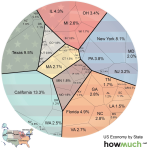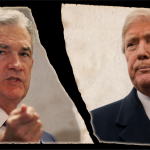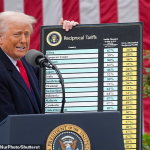Books on money hold the key to understanding the intricate dance between finances and our daily lives. From personal budgeting to macroeconomic theories, these influential reads provide insight into the nuances of money management, guiding readers toward financial literacy and independence. Titles like “The Ascent of Money” and “Money Mischief” not only explore historical perspectives but also offer practical advice that anyone can implement. With recommendations from esteemed economists, these best finance books unravel complex concepts into digestible narratives. Whether you’re looking to sharpen your investment strategies or maximize your savings, diving into books about economics and money can illuminate the path to wealth and prosperity.
When it comes to mastering personal and societal finance, literature on financial strategies and economic principles is invaluable. These informative texts serve as vital resources for anyone aiming to enhance their understanding of fiscal responsibility or seeking guidance on budgeting and investment. By reviewing acclaimed money management books and recommendations from respected financial minds, readers can uncover profound insights that may transform their financial habits. In addition, exploring the historical context surrounding currency through engaging narratives offers a broader perspective on contemporary issues in finance. For those committed to improving their economic knowledge, these essential resources pave the way for informed decision-making and increased economic awareness.
Best Books on Money for Financial Literacy
Understanding money management is crucial for achieving financial literacy. One of the best finance books that delve into this topic is “Money” by Jacob Goldstein, which offers an engaging history of what money is and what it could have been. Readers not only learn about the basics of currency but also uncover intriguing stories of failed monetary systems throughout history, helping to demystify the often complex concepts of finance. Such foundational knowledge can empower individuals to make informed economic choices in their lives.
Another recommended read, “The Price of Peace” by Zachary D. Carter, provides insight into how money influences broader economic frameworks. By exploring the life and ideas of John Maynard Keynes, Carter elucidates the connections between money, war, and prosperity. This book serves as a critical resource for anyone interested in understanding the economic dynamics that shape our world today, making it essential for those looking to enhance their financial literacy.
Influential Economists and their Recommended Reads
Acclaimed economists frequently share their favorite reads, which often includes some of the top economics and money management books. For instance, Kenneth S. Rogoff’s “The Curse of Cash” studies the evolution of currency and its implications, stressing how regulation often follows innovation in money-related technologies. Readers can gain perspectives on how historical trends in money management affect modern economics, becoming better acquainted with the shifting financial landscapes they encounter.
Likewise, Claudia Goldin’s own work, “Career and Family,” touches upon the economic implications of personal choices, especially for women balancing professional aspirations with family responsibilities. Such recommendations underscore the importance of personal finance in the grand scheme of economic theory, allowing readers to connect their lives with broader economic narratives.
Top Books to Navigate Money Management Challenges
Navigating the complexities of money management can be daunting, but several highly acclaimed books can render this journey easier. “The Ascent of Money” by Niall Ferguson paints a historical picture of financial practices, linking ancient lending systems to modern economics. Ferguson’s storytelling approach makes intricate concepts more relatable, while also emphasizing the evolution of money management throughout various historical periods. This book equips readers with valuable context and historical insight, which can sharpen their understanding of contemporary financial practices.
In tandem with Ferguson’s historical perspective, “The Only Game in Town” by Mohamed A. El-Erian demystifies the role of central banks and their monetary policies. El-Erian articulates the significance of these institutions during economic turmoil and provides a critical outlook on the efficacy of policies like quantitative easing. Together, these books enrich the reader’s grasp of money management under various economic conditions, proving vital for anyone keen to thrive in today’s financial landscape.
Recommended Reading for Business and Economic Insights
For those seeking insightful business and economic perspectives, the intersection of money and policy is meticulously explored in books like “The Future of Money” by Eswar S. Prasad. This work explores the advances in cryptocurrencies and central banking, providing both pros and cons to modern financial systems. As businesses increasingly turn to digital solutions, understanding the evolution of money becomes paramount for strategic financial planning.
Additionally, Milton Friedman’s “Money Mischief” offers a deeper analysis of monetarism and its implications for economic policy. Readers are guided through key economic principles that inform major financial decisions at both personal and corporate levels. By immersing themselves in such literature, individuals can better navigate their own financial transactions and understand larger economic frameworks influencing their decisions.
Understanding Economics Through Engaging Literature
Economics may seem abstract, yet literary works can bring its complexity to life. Books such as “The Forgotten Financiers of the Louisiana Purchase” by Larry Neal offer compelling narratives that showcase how money underpins major historical events. This captivating account illustrates the power dynamics of finance and can help readers visualize how economic principles have played pivotal roles throughout history.
Another engaging read, “Ben Franklin: An American Life” by Walter Isaacson, intertwines Franklin’s life with the evolution of currency in America. By examining Franklin’s foresight in adopting paper currency, readers gain insight into the foundations of American finance through a historical lens. Such accounts not only entertain but also enrich one’s understanding of how economic theories were applied in practice.
Financial Literacy Through Historical Context
History often provides the best lessons for current financial practices. “The Curse of Cash” by Kenneth S. Rogoff examines how past innovations in currency have continuously faced government regulation and control, making it a must-read for those wishing to understand today’s financial landscape. By analyzing how various forms of money have evolved, readers can appreciate the relevance of policies influencing modern economies.
Likewise, “The Ascent of Money” explores the broader transactional history, linking past financial practices to current systems. Ferguson’s storytelling not only makes the reading engaging but reinforces the importance of understanding historical context to navigate today’s financial challenges effectively.
Books on Money That Make Finance Exciting
Reading about money doesn’t have to be boring, and several books on money prove that finance can be both interesting and informative. “Money” by Jacob Goldstein presents a lively examination of what money is and how it has evolved. By injecting humor and anecdotes, it makes complex financial concepts accessible to everyone, regardless of their prior economic knowledge.
Additionally, “Career and Family” by Claudia Goldin adds another layer to the discussion by linking personal narratives with economic realities faced by women over the years. By exploring the balance between work and home, Goldin’s work challenges readers to rethink their understanding of economic roles, making the dialogue around money much more engaging.
Exploring Central Banking through Informative Reads
Central banking—often seen as a dry topic—comes to life in works like “The Only Game in Town” by Mohamed A. El-Erian. This book breaks down the complexities of how central banks operate, especially during economic crises, making it an essential read for those wanting to engage with modern financial issues. Through clear explanations, El-Erian demystifies the role of monetary policy in driving economic stability.
Moreover, exploring themes presented in “The Future of Money” allows readers to grasp the technological innovations reshaping the central banking landscape, particularly the rise of digital currencies. Understanding these dynamics is increasingly crucial in a world where financial innovations confront traditional monetary systems.
Books That Bridge Personal Finance and Broader Economics
Many readers seek to connect personal finance with larger economic principles, and there’s an abundance of literature to support this endeavor. For example, “The Price of Peace” not only delves into Keynes’ theories but also discusses their practical implications in managing finances at personal and societal levels. Such interdisciplinary views provide a richer understanding of how to implement financial strategies effectively.
Further, “Money Mischief” addresses the relationship between consumption, savings, and economic policy decisions, linking them to personal finance management. By exploring these interconnections, readers become better equipped to apply economic theories to their own financial decisions and strategies.
Frequently Asked Questions
What are some highly recommended books on money management?
When it comes to money management books, several stand out. Notably, ‘The Ascent of Money’ by Niall Ferguson intricately outlines the historical evolution of finance. Additionally, ‘Money’ by Jacob Goldstein offers an engaging history of what constitutes money and its various forms. For those seeking practical advice, ‘The Total Money Makeover’ by Dave Ramsey is a great resource on restructuring finances.
What are the best finance books recommended by economists?
Top recommendations for best finance books from economists include ‘Money Mischief’ by Milton Friedman, which provides insights into monetarism, and ‘The Future of Money’ by Eswar S. Prasad, a balanced account of today’s financial technology, especially cryptocurrencies. Additionally, ‘The Price of Peace’ by Zachary D. Carter gives a nuanced view of economic policy influenced by historical financial figures.
Which books about economics should I read to enhance my financial literacy?
To boost your financial literacy, consider reading ‘The Curse of Cash’ by Kenneth S. Rogoff, which discusses the evolution of currency and its implications for digital money. ‘Career and Family’ by Claudia Goldin addresses economic marketplace challenges, particularly for working women, making it relevant in understanding financial dynamics.
How can I learn about the history of money through books?
For those interested in the history of money, ‘The Ascent of Money’ by Niall Ferguson is highly recommended. It narrates the development of financial systems through captivating stories across different eras. Also, ‘Money’ by Jacob Goldstein provides an entertaining overview of what has been considered money throughout history.
What should I look for in money management books?
When seeking money management books, look for practical tips, relatable examples, and clear strategies for budgeting and saving. Notable titles include ‘The Total Money Makeover’ by Dave Ramsey, which emphasizes debt elimination, and ‘The Only Game in Town’ by Mohamed A. El-Erian, which explains the implications of central banking policies.
Can you suggest some economist’s book recommendations for understanding finance?
Certainly! Notable economist book recommendations include ‘The Only Game in Town’ by Mohamed A. El-Erian, which explores central banking in the post-financial crisis era, and ‘Ben Franklin: An American Life’ by Walter Isaacson, highlighting Franklin’s contributions to finance and currency in early America.
What are effective books on financial literacy for beginners?
For beginners, effective books on financial literacy include ‘The Millionaire Next Door’ by Thomas J. Stanley, which provides a practical approach to wealth-building, and ‘Rich Dad Poor Dad’ by Robert Kiyosaki, which discusses the mindset around money. Both are excellent starting points for understanding personal finance.
| Author | Title | Description |
|---|---|---|
| Jason Furman | Money by Jacob Goldstein | An entertaining history of what money is and what aspired to be money. |
| Jason Furman | The Future of Money by Eswar S. Prasad | A reliable account of cryptocurrencies and central banks’ digital currencies. |
| Jason Furman | Money Mischief by Milton Friedman | Significant scholarly books on money, focusing on monetarism. |
| Jason Furman | The Price of Peace by Zachary D. Carter | Biography of Keynes and his economic influence on war and peace. |
| Kenneth S. Rogoff | The Ascent of Money by Niall Ferguson | History of debt and finance through engaging narratives from antiquity to today. |
| Kenneth S. Rogoff | The Only Game in Town by Mohamed A. El-Erian | Examines central banking post-financial crisis and the implications of monetary policy. |
| Kenneth S. Rogoff | Ben Franklin: An American Life by Walter Isaacson | Biography emphasizing Franklin’s role in pioneering paper currency. |
| Kenneth S. Rogoff | The Curse of Cash by Kenneth S. Rogoff | Discusses the evolution and regulation of currency, including digital currencies. |
| Claudia Goldin | The Forgotten Financiers of the Louisiana Purchase by Larry Neal | Explores the financial intrigue behind the Louisiana Purchase deal. |
| Claudia Goldin | Career and Family by Claudia Goldin | Discusses women’s balancing of career ambitions and family roles in recent history. |
Summary
Books on money provide invaluable insights into the complexities surrounding financial systems and economic policies. This selection of recommended readings from Harvard economists not only highlights the historical context and evolution of money but also delves into contemporary discussions surrounding cryptocurrencies and monetary policy. Each of these works offers a unique perspective, making them essential for anyone looking to deepen their understanding of money’s impact on our lives.

